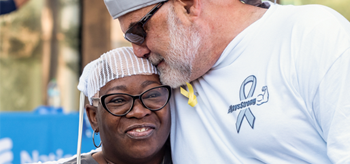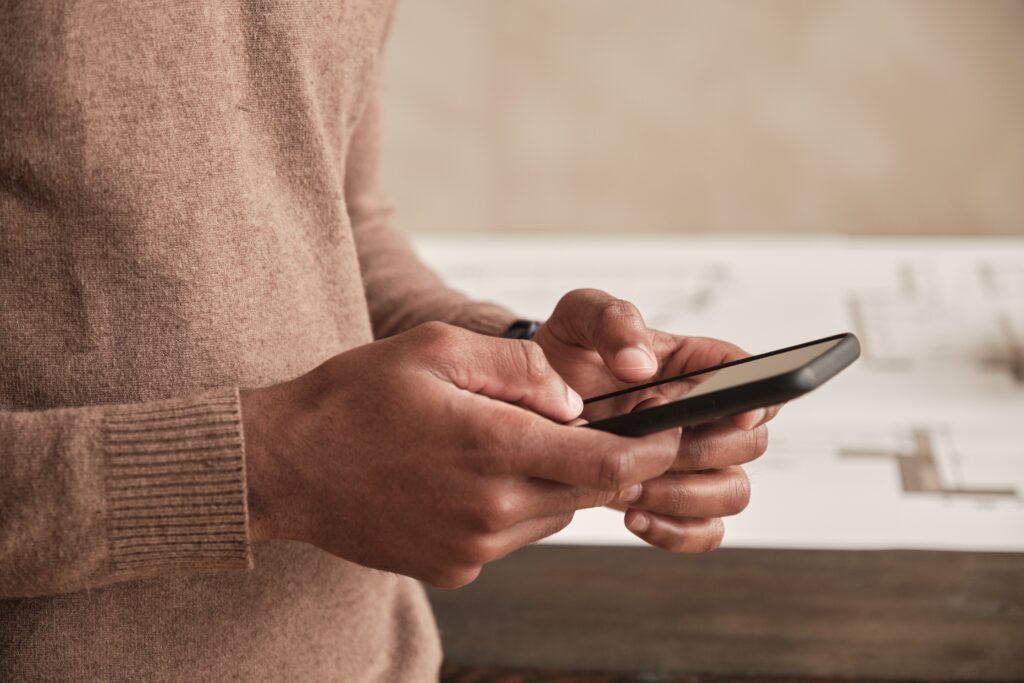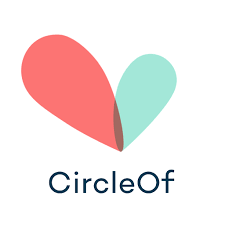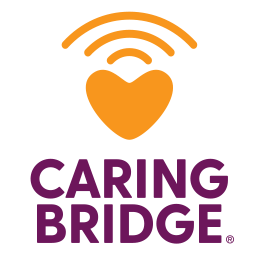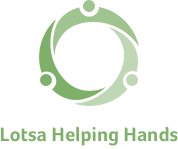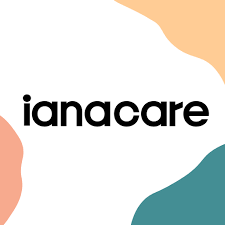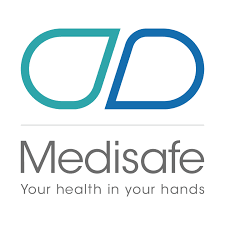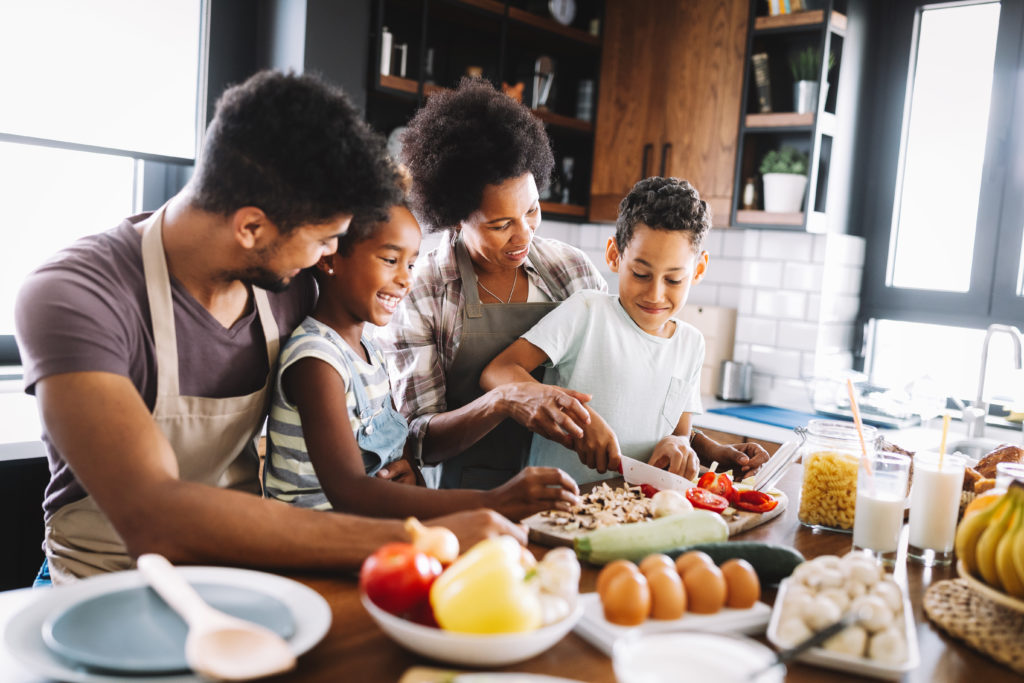Caring for a loved one with a brain tumor is a profound and often challenging experience. As a caregiver, you not only provide physical support but also offer the essential emotional comfort that your loved one needs.
Care coordination, in particular, can be a daunting aspect of this responsibility, with medication management, appointment scheduling, and keeping family and friends informed being just a few of the many tasks you need to handle. Fortunately, there are apps specifically designed to offer a helping hand with caregiving.
The five apps for caregivers shared below can help care partners streamline tasks, keep everyone in the loop, and, most importantly, provide them with the support they need.
App #1: CircleOf
CircleOf is an application that gives family caregivers the power to organize, collaborate, and ask for extra help. Caregivers can use the app to create a shared calendar to coordinate medical appointments, treatment schedules, and other caregiving tasks. This app ensures that everyone knows essential dates and responsibilities, making managing the patient’s care plan easier.
Users can assign a task to their “team” to get help with rides to appointments, grocery shopping, errands, medication pick up, dog walking, child care, and more. Once someone accepts a task, the caregiver will receive a notification.
If they prefer to keep their caregiving messages separate from their general texts, they can use their private chat function to share important information.
This app is available through the Apple App Store and Google Play.
App #2: CaringBridge
CaringBridge is a free, dedicated platform for keeping friends and family informed about your loved one’s condition. The app makes it easy for caregivers to share updates and reduce the emotional burden of repeating the same information to multiple people. They can keep everyone informed and engaged by posting regular updates on the patient’s brain tumor experience.
An estimated 73% of CaringBridge sites are created by a family caregiver to post updates about the patient’s condition, treatment, and progress. The guestbook feature allows friends and family members to leave messages of support and encouragement.
When creating a CaringBridge site, care partners can choose their privacy settings to control access to who can view the page. Account holders can also add one or more co-authors so that the patient and others in the patient’s circle can post.
Caregivers can update the site through an internet browser or download the app from the Apple App Store or Google Play.
App #3: Lotsa Helping Hands
Lotsa Helping Hands is a website and an application that allows families and communities to organize care teams to help someone in need. A care partner can set up an account on their platform to help organize care for a patient with a brain tumor.
Caregivers often are asked the question, “What can I do to help?” With this app, care partners can direct them to sign up through their “Help Calendar” to take the patient to a medical or therapy appointment, prepare a meal, or plan a visit.
As they post new needs, everyone in their community will receive an email about the opportunity. They will also receive reminder emails for any commitments they make to keep it top of mind.
In addition to logistics management, the platform also has a “Notes” section where caregivers can keep important details in one place, such as medications, allergies, dietary restrictions, important contact information, doctors, etc., for quick reference at appointments.
All communities are private, so only approved individuals can join. Each note can be restricted, so you could have favorite meals and dietary restrictions open to the full group, while keeping medications and other more private information restricted to just the caregiver and patient, for example.
Lotsa Helping Hands is available through its web-based platform, the Apple App Store, and Google Play.
App #4: ianacare
ianacare is a free application that helps patients, families, and other volunteer supporters coordinate team-based care.
The caregiver or an approved organizer can share requests, assign specific tasks, and keep track of their care calendar. Examples of requests and tasks that the app can track include meals and groceries, rides, child and pet care, errands, and more.
The app also includes local resources and content all in one spot, so care partners can find tips for managing care and physical and mental health. It also provides key documents and resources for finances and legal matters.
The app is available through the Apple App Store and Google Play.
App #5: MediSafe
Brain tumors can require various medications that may be taken at different times. It may be difficult for a care partner or patient to keep track of.
Liz P. manages her husband’s daily medications because it has become too complicated and frustrating for him to handle on his own. Yet overseeing medications, which he takes as a patient with ependymoma, hasn’t been without its complications.
Unbeknownst to Liz, Julio ran out of his seizure medication, so she had not picked up a refill. As a result, he took his daily pills without his seizure pills in the pill organizer and had a seizure later that day. Mistakes like these are understandable and only human. One way to try and address them is to use technology to help keep track of things.
An app like MediSafe can help care partners like Liz track the patient’s meds. Not only can the patient’s meds be added to the app, but caregivers can keep track of their medications and anyone else in their home — pets included – to make it one less thing to remember.
If a care partner does not live with a patient with a brain tumor full time, their Medfriend feature will ping them when a loved one misses a dose so the caregiver can give them a nudge from afar.
In addition to reminding caregivers and patients about medications to take, the app will notify users if two or more meds may have an adverse interaction so they can follow up with their pharmacist and health care team for clarification. The app will also notify them when it’s time to request an upcoming refill.
Bonus Website: Meal Train
Whether a patient is newly diagnosed, recovering from surgery, or undergoing treatment, it can be challenging for the caregiver to find time to cook fresh meals every day. When family and friends come together to help provide meals for a patient and their care partner, it can alleviate stress and free up time for the caregiver to focus on other aspects of care and life.
“The biggest thing for us was the meal train,” Melanie F. said. “Friends would bring soup over Monday and Wednesday and then pasta on Friday. It was so nice not having to think about meals with everything else going on.”
Meal Train provides a free way to organize meal giving around significant life events for family and friends. Caregivers can answer questions to specify meal preferences, allergies, favorite restaurants, and more.
Individuals can sign up to volunteer to provide a meal on a specific day, purchase a gift card, or add to a donation fund to show their support. Participants can see what other people bring for meals to help avoid the same meal multiple times.
The interactive meal calendar makes inviting others via email, social media, and text easy. It even sends automatic email reminders one week and one day in advance.
Meal Train is only available through its web-based platform.



